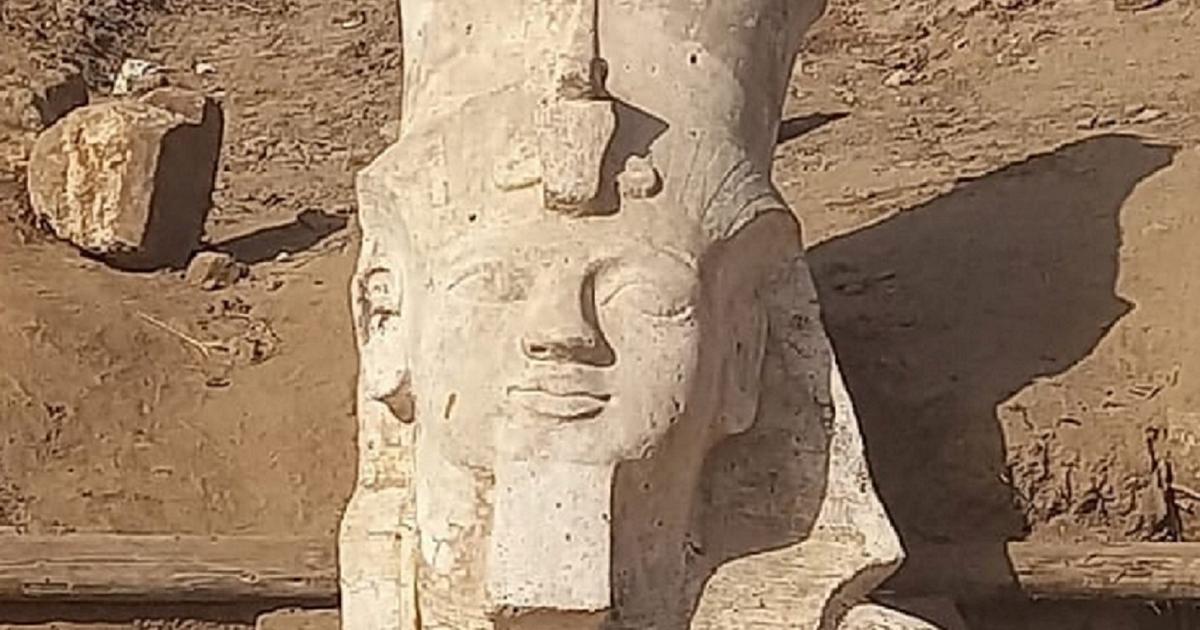Every day, when the clock strikes six in the morning, Ramadan El Asiuti approaches the two pumps that provide water to the agricultural farm that he runs.
Your job is to clean the filters on the machines to make sure the water coming from the Nile is clean when you water your mangoes and citrus fruits.
Exactly at that time, one kilometer away, the main pumping station that will supply water to the area to which its land belongs, located in the town of Nubaria, at the western end of the fertile river delta and 150 kilometers from Cairo.
The Asiuti always carries out his work at the same time because at three in the afternoon the water is cut off.
The farmer says that when he arrived in Nubaria two decades ago, the water flowed through the main pipe every day of the week, except Monday, and stopped at 5 p.m. or even later, depending on the needs.
Now, instead, the water is cut off Tuesday and Friday, and every day, religiously, at three in the afternoon.
"The shortage is approaching," he warns emphatically.
The fear that the mega-dam that Ethiopia is building on the Nile will drastically decrease the flow runs through the Egyptian countryside.
The future of the country has been intimately linked for millennia to the water of the Blue Nile, which flows down from the Ethiopian highlands to Khartoum, the capital of Sudan, to cross the road with the White Nile and continue their journey together to the Mediterranean.
As it is the only source capable of making one of the driest areas on the planet flourish, the Egyptians developed an irrigation system 8,000 years ago, taking advantage of the annual flood season, which gives the country a privileged experience.
Hassan Husseiny, an expert in water and irrigation management who knows Nubaria closely, points out that "most of the world does not irrigate, but God irrigates for them with the rain," he adds, "but here we do not have, but we manage water that comes to us from the south ”.
This extensive experience has allowed Egypt to weave, especially since its modern founding in the 19th century, a highly sophisticated irrigation system.
It integrates dams and reservoirs with the capacity to retain billions of cubic meters of water, and an extensive network of channels of tens of thousands of kilometers that allows the water of the Nile to be controlled, diverted and distributed.
Taking advantage of this, the successive regimes that have ruled Egypt have embarked on a constant war against the desert to expand the arable area and settle a new population.
And they have launched megalomaniacal plans to expand the arable area and settle a new population.
However, the system today is leaking everywhere after decades of questionable management of the Nile by an Administration, which has neglected the vast system of public channels, has allowed the river to become a landfill and is one of the most contaminated the world, and has promoted pharaonic projects that consume a lot of water, like the new capital of President Abdelfatá al Sisi.
Added to them is a vertiginous increase in the population, which in Egypt - with its more than 100 million inhabitants - is one million every six months.
And now, the mammoth dam that Ethiopia is finishing upriver, which faces Addis Ababa and Cairo over the regulation of the flow without an agreement being reached so far.
Built on the river's main tributary, the Blue Nile, the Renaissance Dam promises to become the largest hydroelectric dam in Africa.
For Ethiopia, which estimates that the work will increase its power generating capacity by 115%, the installation is crucial for its development.
But Egypt, which is 98% dependent on Nile water, fears that infrastructure - and those that may come - will be the finishing touch to its fragile balance.
The country allocates 86% of its water to agriculture, which with a cultivated area of 3.8 million hectares represents around 12% of GDP and directly employs a quarter of its population.
"In Arabic we have an old saying: 'Water does not pass through a thirsty person.'
If you are thirsty you will not let the water pass;
you're going to cut it.
We are at the extreme, and [those who are closest to the Nile] are not going to let the water pass until they water.
And if they insist on watering their lands when they need it, it means that the water will not arrive ”, warns the Egyptian expert.
In this context, the effects of climate change also threaten to impact the water system.
Although the debate on what impact it will have on the amount of water flowing through the Nile remains open, phenomena such as rising sea levels - which directly threaten the fertile delta - and increasingly volatile weather have already begun to occur.
Underground water
"It is true that Egypt's irrigation system is unique, but it is also ancient," says Hani Sewilam, a professor at the American University of Cairo and director of its Center for Applied Research on Environment and Sustainability.
The also member of the Egyptian team in the negotiations on the Ethiopian dam considers that “the great challenge is the accumulation of problems during more than 200 years since this network was established”, but maintains that “Egypt's water system had never received a level of care like the current one [by the Government] since its establishment ”.
Farmers, like those in Nubaria, are taking action on their own.
In addition to juggling the water to make up for the days it doesn't flow through the canal, well-digging studies appear to be spreading.
The Asiuti explains that, in his case, they are considering carrying out the work above all to have the guarantee of being able to irrigate and cool their land during the heat peaks and heat it during the coldest ones.
But they are aware that wells are not a magic bullet, but rather another short-term remedy.
Nubaria, like much of the delta, is close to the sea, where groundwater would quickly reach high levels of salinity, so the question here is how deep it could be dug and, above all, how much water could be extracted.
If containment plans continue to falter and shortages intensify, El Asiuti anticipates a bleak outlook for the region.
"If the water decreases, people will start digging wells, but they will be shallow and they will not survive more than five or six years before stopping," slides the farmer, who warns: "If there is no water, or the water is salty, and there is no solution, everything is going to dry up and people are going to leave ”.
Crop restrictions
The Egyptian government has also started to show clear signs of concern.
Hence, it is willing to increase imports of food whose cultivation requires the use of a lot of water - such as wheat, of which Egypt is already the world's largest importer -, improve the quality of what it uses and the network of channels for reduce waste and build desalination and wastewater treatment plants.
In addition, it is proposed to modernize part of the country's irrigation system and prohibit certain crops, especially rice, whose cultivated areas the Government tries to regulate with relative success.
The measures have been criticized for the absence of alternatives, which in the case of the ban on rice cultivation affects many families in the delta, and for being rather palliative and short-term.
The Ministry of Water has refused to speak to EL PAÍS about its strategy.

/cloudfront-eu-central-1.images.arcpublishing.com/prisa/FSFLBJ5BZ5EFFPHWFNF2B6RPAY.jpg)

/cloudfront-eu-central-1.images.arcpublishing.com/prisa/4FLE5PNY3VBLRCDNGWKQRJSUN4.jpg)

/cloudfront-eu-central-1.images.arcpublishing.com/prisa/NFJ4WIJE5VH37NB3W7TPRSICEI.jpg)
